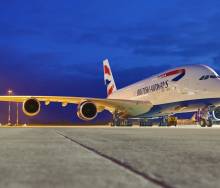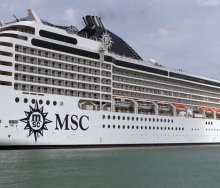It appears that the expression of interest by Lufthansa Group and MSC to buy a controlling stake in ITA, the Italian government-owned flag-carrier, is becoming a sale agreement.
ITA was born from the ashes of Italy’s government-owned airline, Alitalia.
Italian-Swiss shipping behemoth, MSC (the owner of MSC Cruises) and the Lufthansa Group, in January this year made a joint bid for a controlling stake in ITA, and required a 90-day exclusivity period to review ITA’s financial data.
Lufthansa is Europe’s largest airline by aircraft numbers, and a powerful player in the European economy. It has many subsidiaries, including SWISS, Eurowings, Austrian Airlines, Brussels Airlines and Edelweiss.
MSC Group is the largest shipping company in the world. It encompasses cruise ships, container shipping and logistics operations, including the use of leased freighter aircraft. MSC released a statement on January 31 saying the acquisition would exploit efficiencies in both passenger and cargo. A deal would allow MSC to move into air freight, which surged in profitability during the pandemic.
Although Italian press claimed that Delta Air Lines and Air France KLM, together with an unnamed fund, also wanted a majority stake in ITA Airways, and a third expression of interest was in play, that of an investor with interests in low-cost airlines, the Italian government has now approved the sale to Lufthansa and MSC.
When Alitalia operated its last flight in October 2021, ITA launched on capital of €700m (R1,23bn) which it used to buy assets from Alitalia – 52 aircraft, contracts and some slots (85% of Alitalia’s slots at Linate Milan and 43% of Alitalia’s slots at Fiumicino, Rome). Alitalia’s staff of 11 000 were reduced to a complement of 2 800 in ITA's aviation unit.
Lufthansa CEO, Carsten Spohr speaking to aviation news website, ch-aviation.com, said: “Italy is the most important international market for us in Europe, and it’s number-two worldwide, second only to the US.”
Following what airlines have endured during the COVID-19 crisis, it is likely there will be a period of airline consolidation as the new, post-pandemic global aviation economy becomes clearer.















